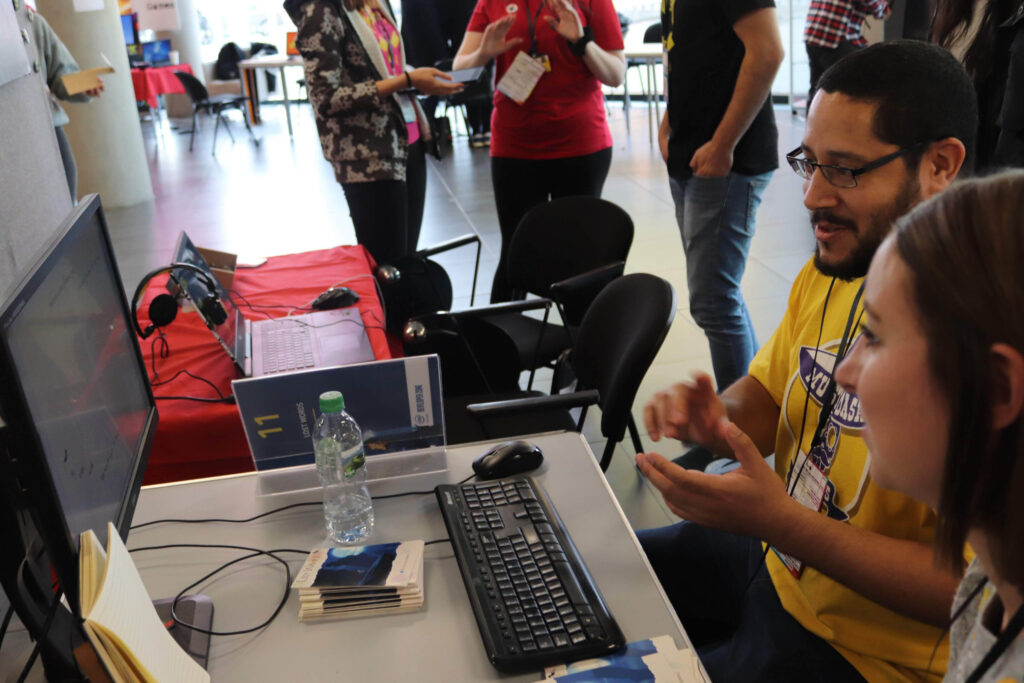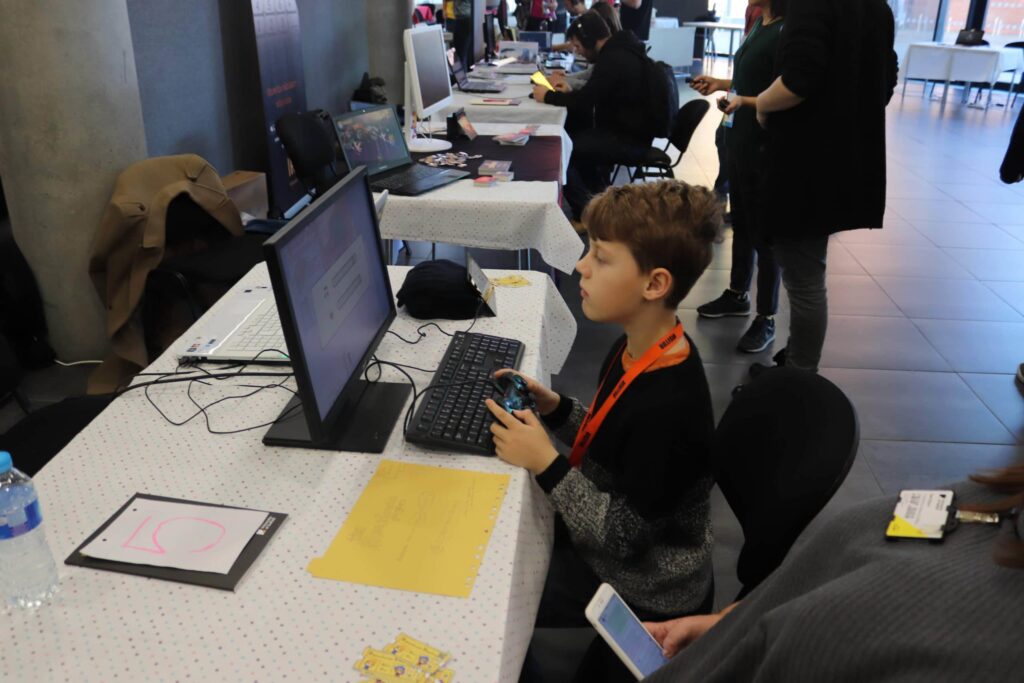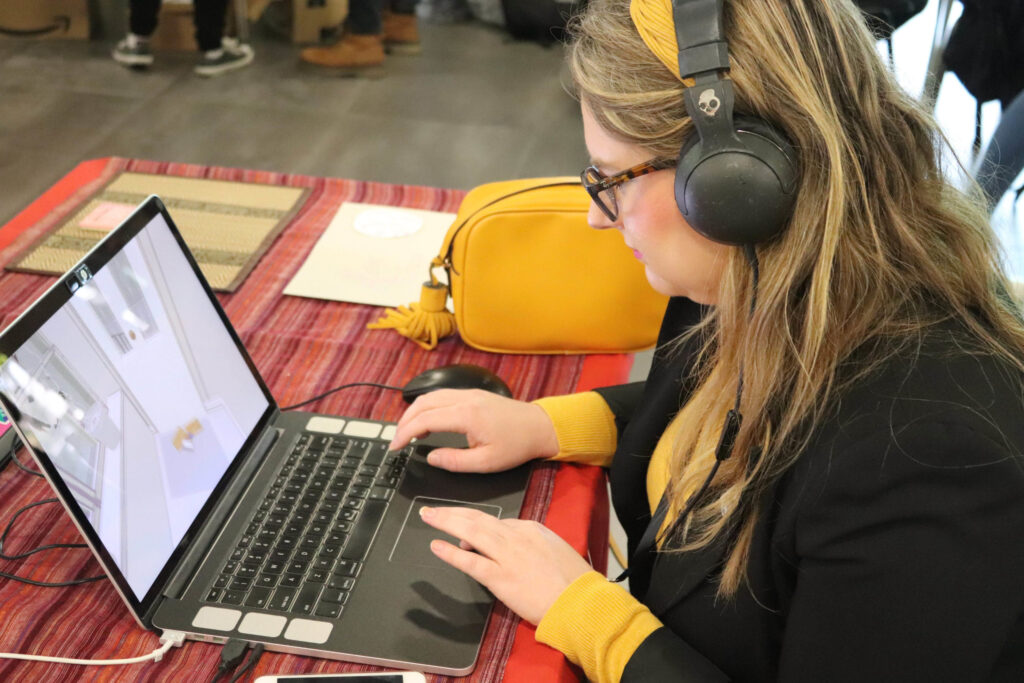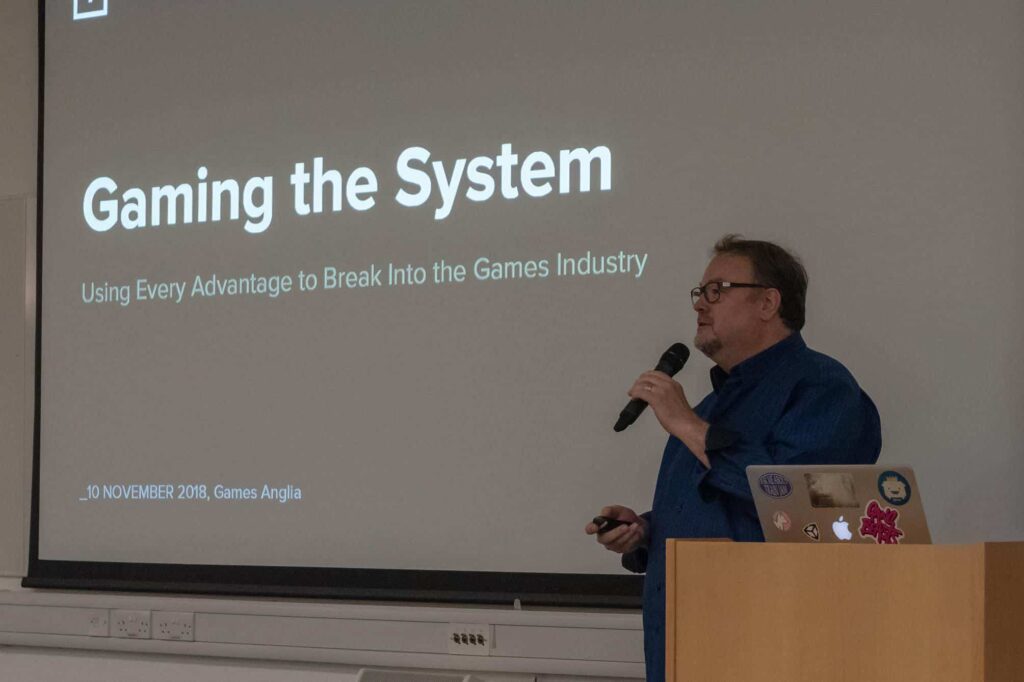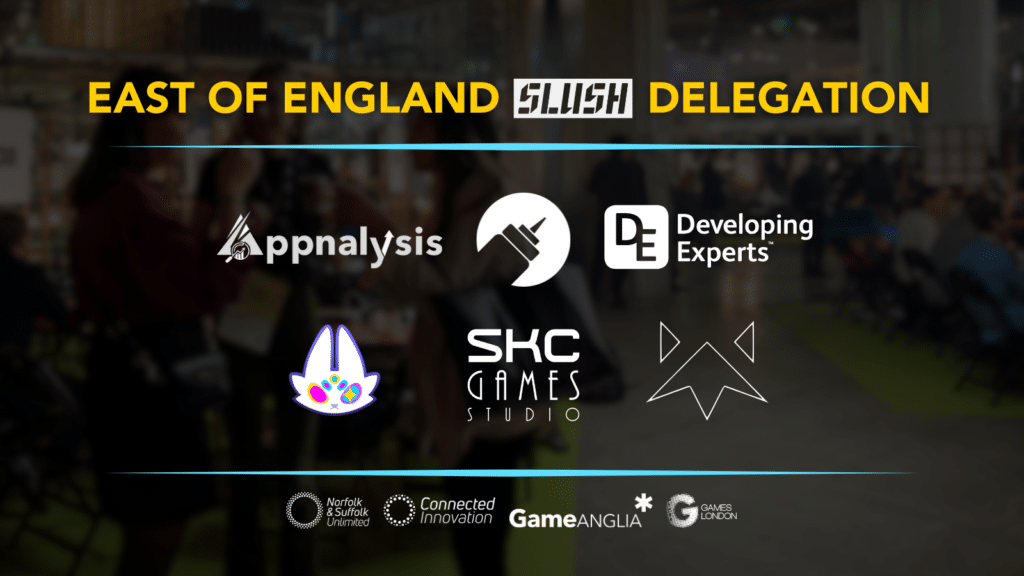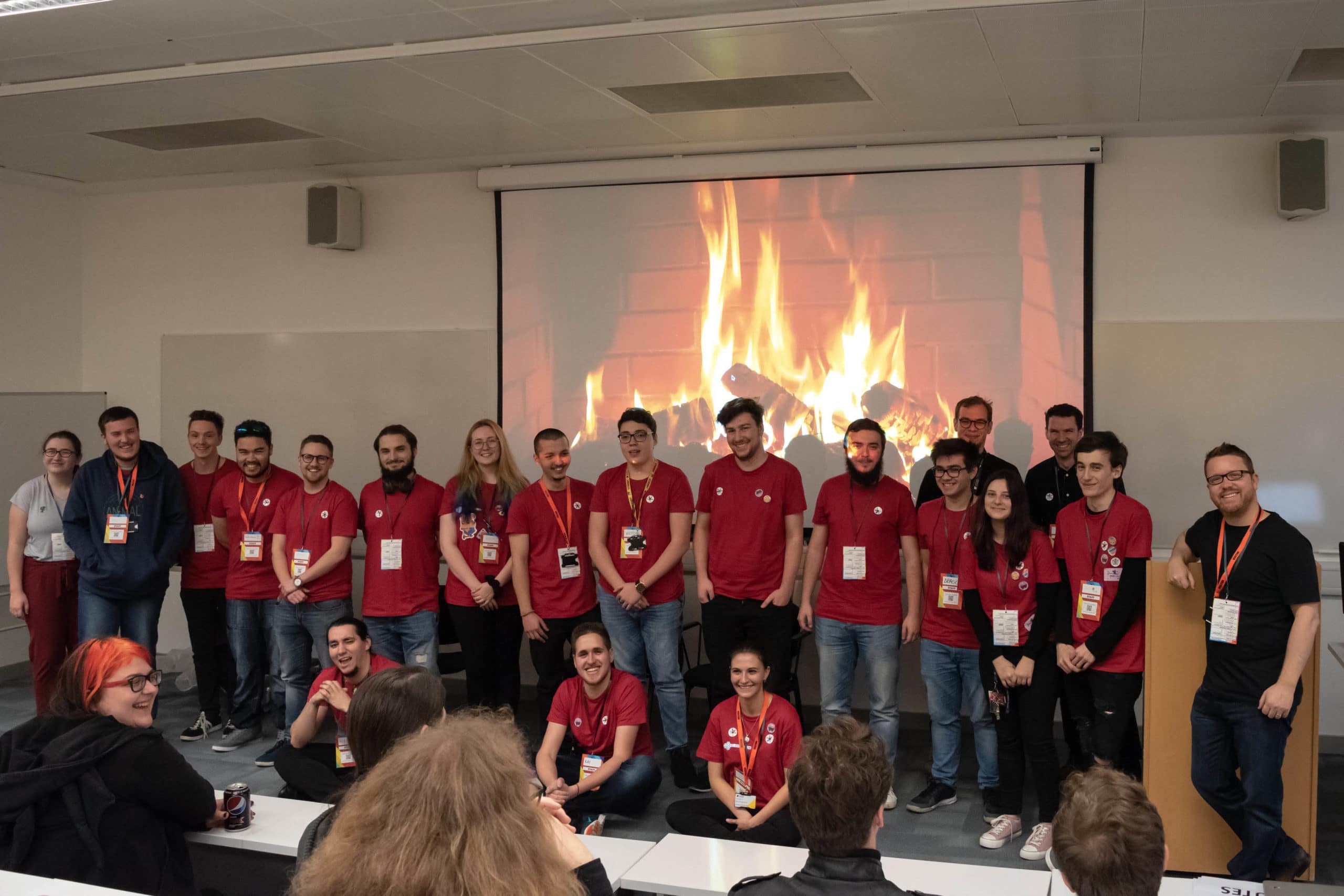
Speakers at Game Anglia Explore Community in Games Development
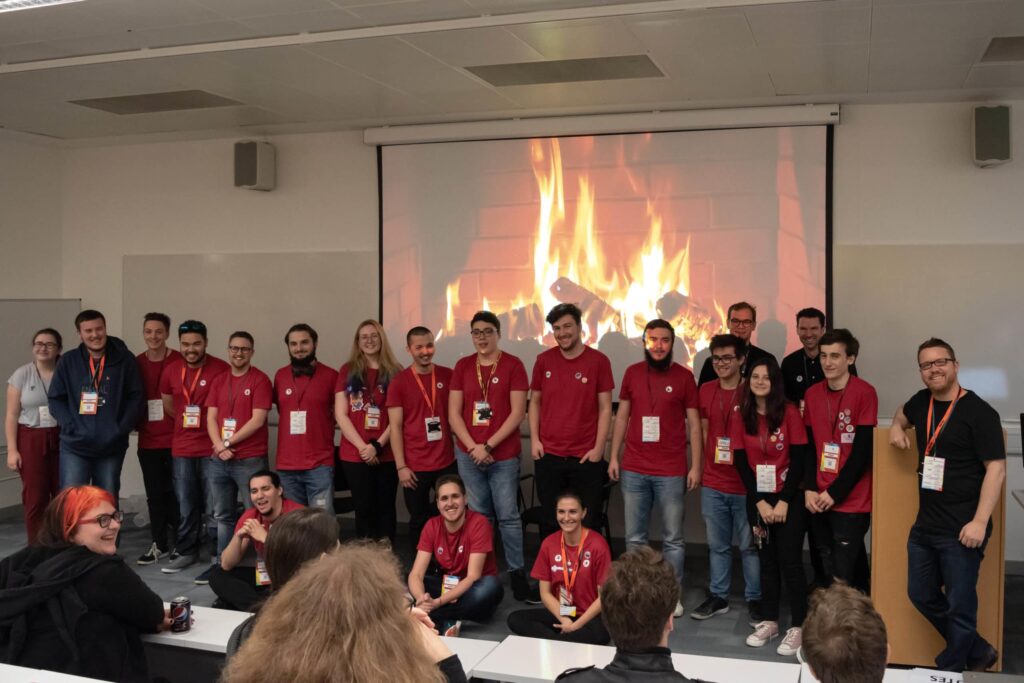
On Saturday 10th November, the University of Suffolk welcomed students, game developers, and industry legends to the second GameAnglia, uniting the East of England in the largest game development conference in the region.
The theme this year was ‘community’, and this couldn’t have been more apparent in the topics of the talks from a wide variety of speakers and the warm, welcoming atmosphere.
With every facet of the games industry covered in a wide range of expert speakers and an indie game showcase, studios from far and near travelled to the heart of Suffolk to present their creations.
The Speakers
Bill Roper
With over two decades in the gaming industry, Bill has worked with the likes of Blizzard and Disney, and has founded his own development studios. Today, he’s the CCO at Improbable. His talk explored the three fundamental aspects of advancing your career in game development: continuing to create prototypes, practising and refining your pitch, taking work that helps get your foot in the door (even if it’s not your dream job to start with), and perhaps most poignantly of all, after sharing his desire to leave the gaming industry behind after Flagship studios’ financial issues: don’t quit! Bill says that whilst bigger studios are more challenging to get into these days, there are far more opportunities in smaller, indie teams.
AR and VR technologies will continue to grow in the future and mobile is the fastest growing platform for gaming right now – his belief is that in the future, there will be one universal system for gaming, accessible anywhere via the cloud.
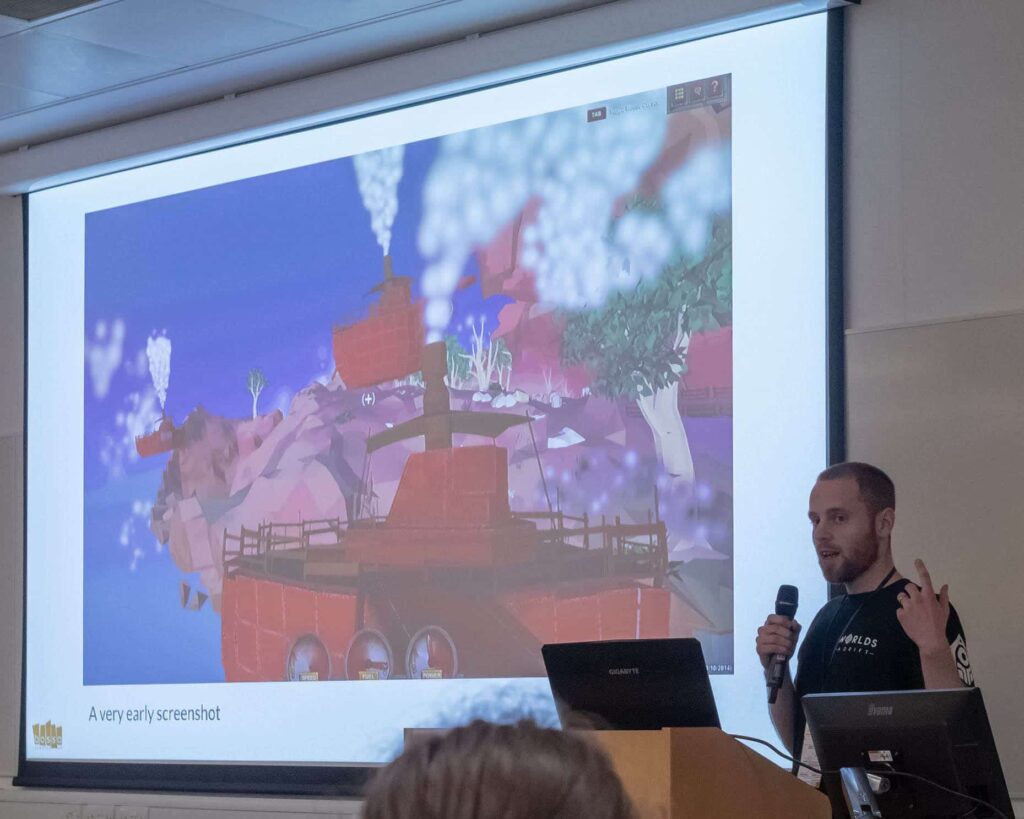
Andy Green
Worlds Adrift began its life in a game jam. Andy talked us through the process, advantages, and downfalls of having an ‘open dev’ – users having early access and creating their own content to provide feedback.
UGC (user generated content) is a fantastic method for players to expand and market your game with fan art, community podcasts, and physical items. Open dev is an intelligent way of judging demand for your game and figuring out what improvements need to be made, but can result in complaints in the early stages, and additional work in supporting your fanbase and managing expectations. Remembering that you’re in control of the development process is key – listen to feedback, but don’t feel as if you have to implement everything players want!
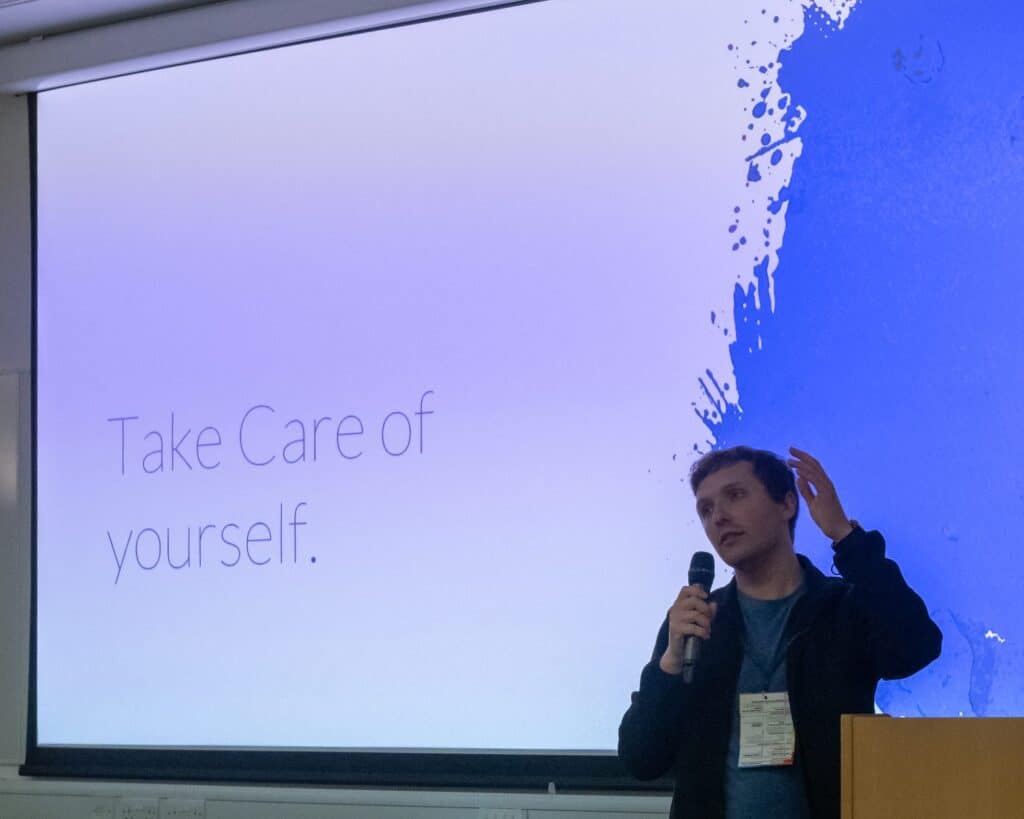
Sam Read
The creator of BAFTA nominated game Gang Beasts took us through his game development journey from University in 2009 to the present, reminding us that continuing to make prototypes and sharing them with our peers is vital to getting better at taking criticism.
He pressed that networking is a valuable tool in opening doors to new opportunities – including attending game jams. You never know where being nice to everyone around you will take your career! Finally, it’s imperative that when you’ve been working hard on advancing your games, to take a mental health break every now and then. Looking after your wellbeing is crucial to continue enjoying the process and producing your best work.
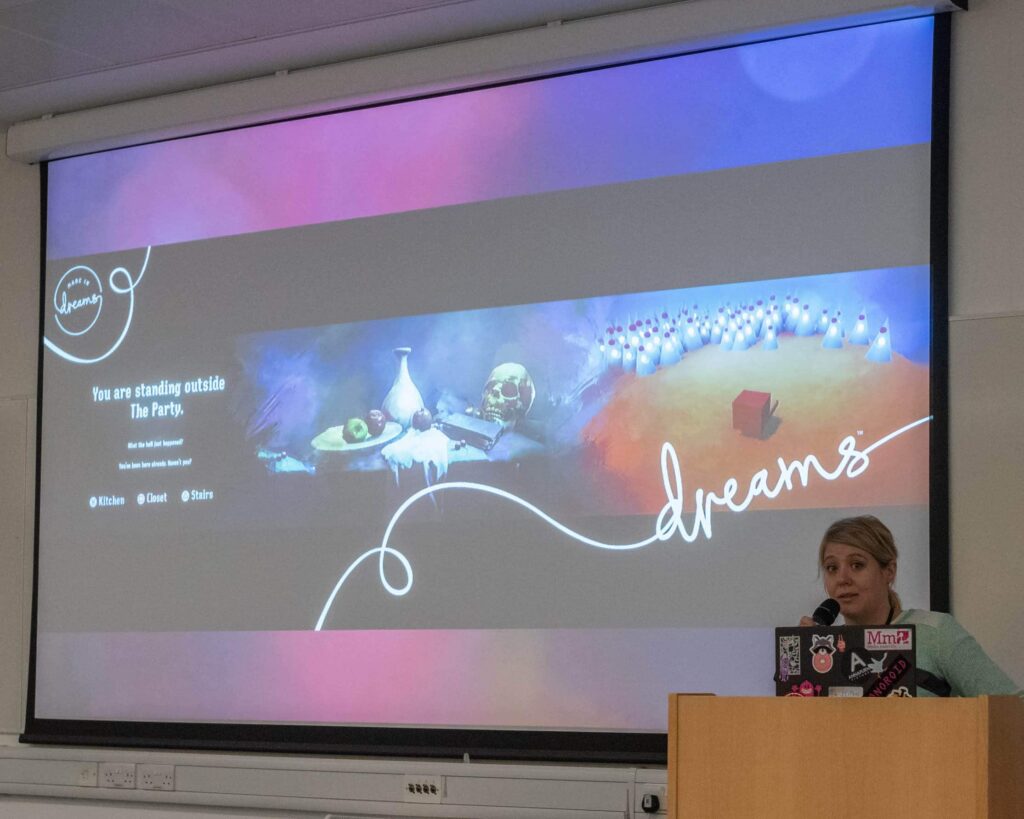
Abbie Heppe & Tom Dent
Communications and Community managers Abbie and Tom took us on a journey on a different side of games development, the management of the gaming community for Dreams. Their roles are to develop the ‘voice’ of the brand, engage new and existing fans alike on social media and through spaces like Discord, and to educate and inform of issues and game news.
The keys to success? Always show the ‘human’ side behind your replies, make sure to reply to questions and engage your fans, and choose a strategy that works for your studio the best.
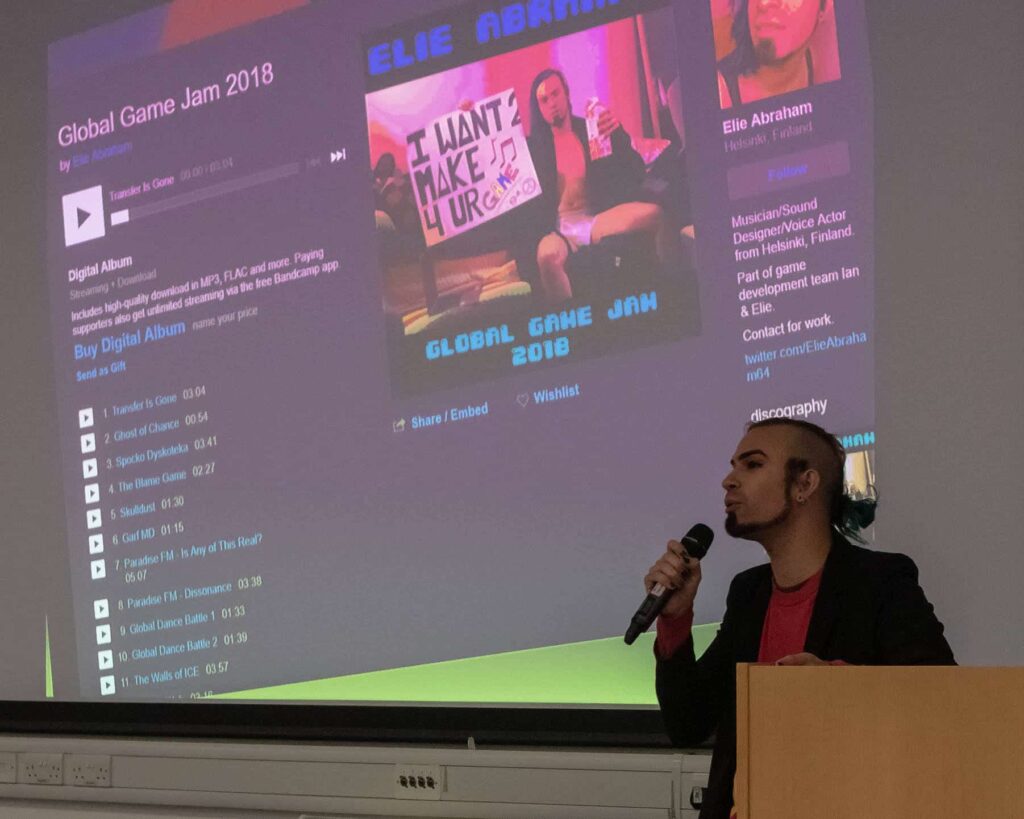
Elie Abraham
A talk filled with humour and personal honesty, Elie explained what made them ‘the guy with the sign’ at game jams, voice artist and musician, and the mascot for Train Jam, despite having no prior experience.
With over 130 game jams under their belt and tons of new friends in the industry from simply holding up a sign with the words ‘I want 2 make music 4 ur game’, Elie has travelled the world freelancing as a composer, voice artist, and even a DJ at top gaming events like A Maze Berlin.
Elie advised being in the right place at the right time and networking are 50% of what makes your gaming career – you don’t have to be the best to get amazing opportunities, you simply have to network, be nice to everyone you meet, and work hard at what you love, taking breaks when you need them.
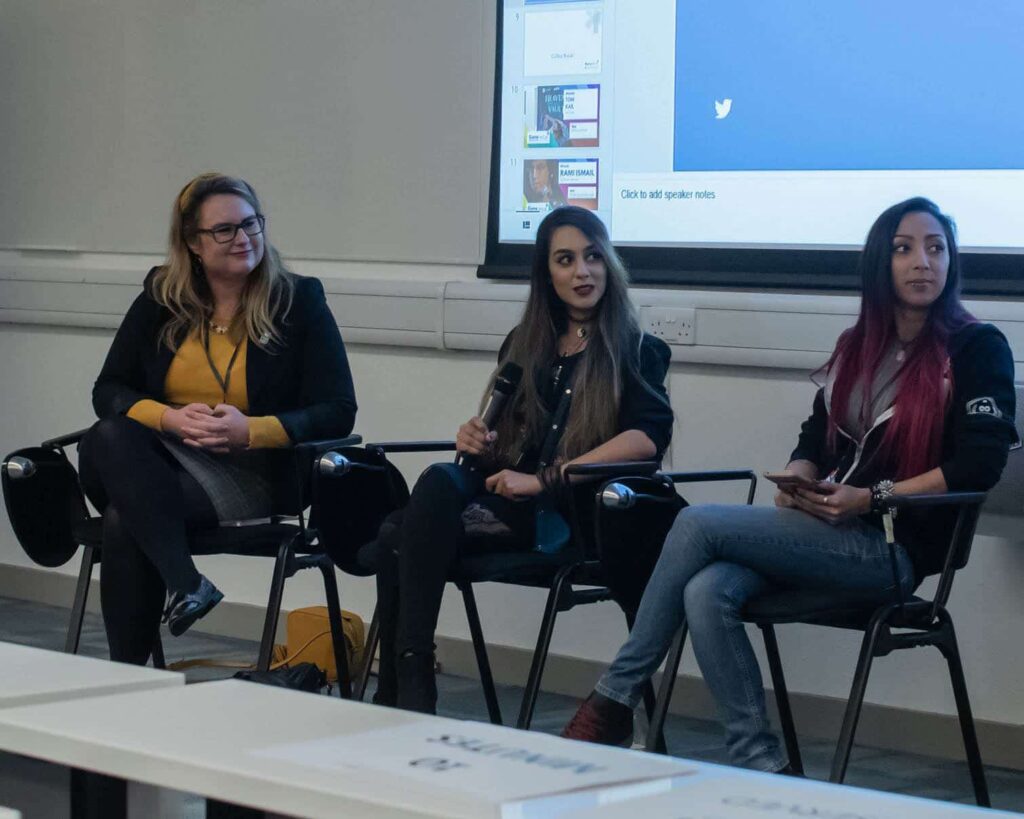
All-star panel: Jasmine Kanuga, Charlotte Steggall, and CyborgAngel
An all-female panel joined us next comprised of CS:GO eSports admin Jasmine Kanuga, Partnered Twitch streamer CyborgAngel, and Higher Education champion Charlotte Steggall.
In this enriching talk on alternative routes into the gaming industry with a Q&A from the audience, Cyborg taught aspiring streamers and content creators that reaching out to developers and networking at events is just as important as figuring out your unique stance on broadcasting to make your channel stand out. Jasmine talked us through her journey into eSports, what her typical timetable looks like, and how volunteering at eSports events can help you gain valuable experience. Charlotte explained what it really takes to be a translator in games – not just the ability to translate language, but also to understand cultural differences and challenges with being immersed in a different country.
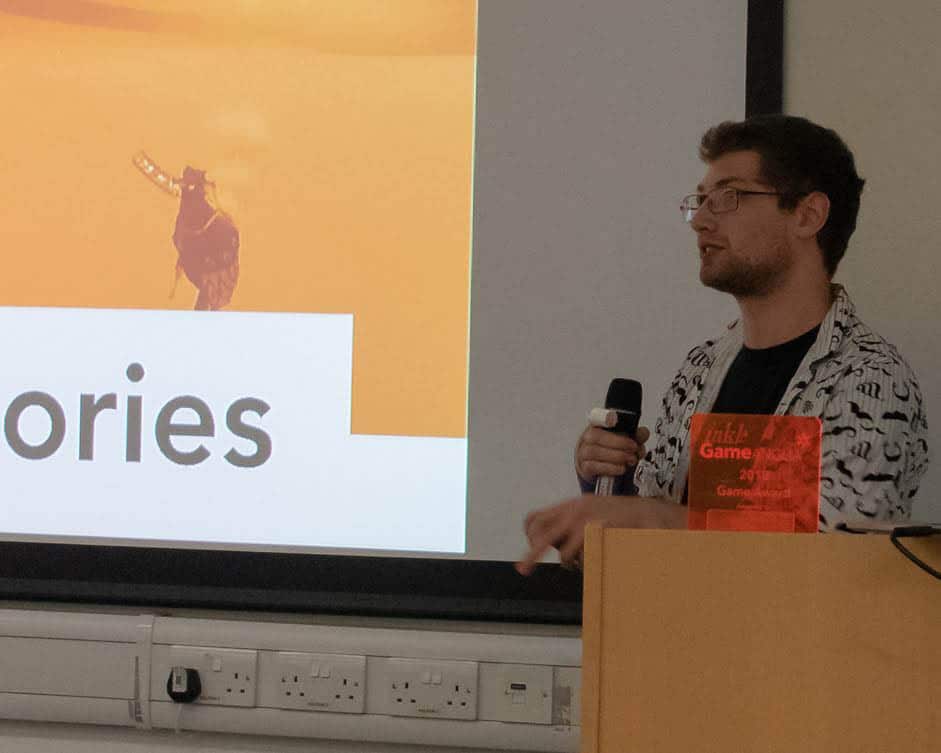
Tom Kail
‘Games are supposed to be hard’ is a common myth. In Tom’s talk, he broke down the constituent parts of a game and we explored ‘activities’ – the breaks in a game’s action in the form of cutscenes and puzzles, which helps pace action and story-driven games. A talk which helped a non-games developer like me really understand the structure of games in an entirely different way!
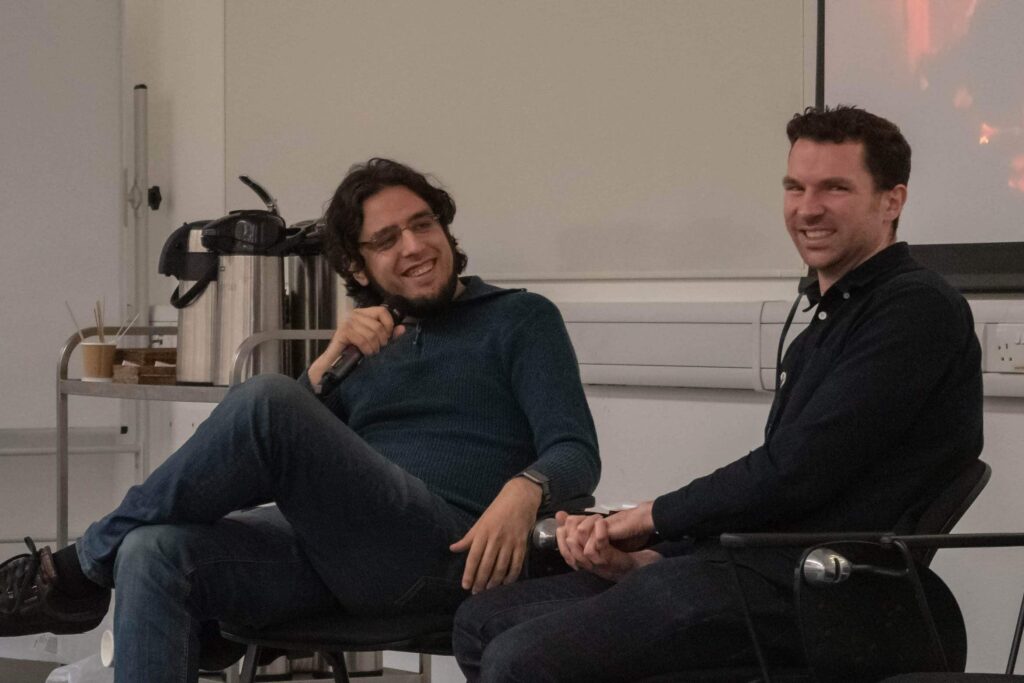
Rami Ismail
To round off the day of inspiring talks, we sat around the virtual campfire with Rami and indulged in a Q&A, discussing everything from his latest endeavors, how to make the games industry better by addressing ‘human’ problems like social and political issues, to conquering imposter syndrome (showcasing his MS Paint abilities with a handy Dunning-Kruger graph).
Networking and getting involved in discussions on social media, being honest with fellow game developers and being willing to accept feedback are the best ways to continue growing. And again, take care yourself! As Rami says, ‘no game is worth the developer’.
Let’s play
Every talk I attended taught me something new, even if I was sceptical whether I’d find the advice useful. You don’t just have to be a game developer to get into this fast-growing and diverse industry – working hard, getting involved in the community, and being open to opportunities are sure fire ways to develop any gaming career!
